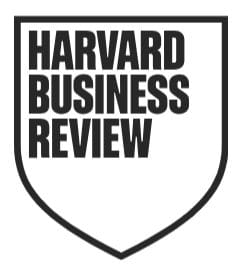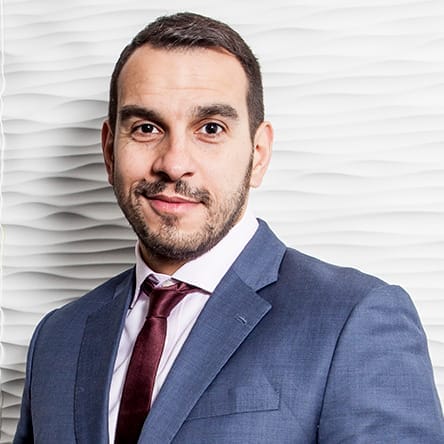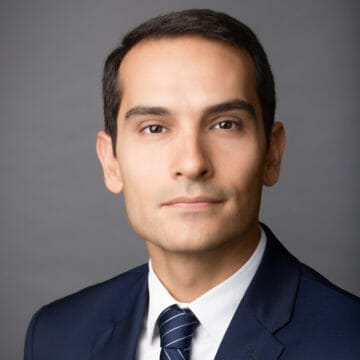Videos
Learn More About Mark R. Kramer
Some organizational leaders may be quick to dismiss terms like “do well and do good” or “impact investing,” assuming efforts to implement such programs would be costly or hinder growth. But they could not be more wrong, says renowned advisor, speaker and educator Mark R. Kramer, pioneering co-creator of the Creating Shared Value (CSV) concept.
A senior fellow at Harvard Kennedy School’s CSR Initiative of the Center for Business and Government, Kramer helps many of the world’s largest foundations, corporations and nonprofit organizations strategically leverage business opportunities with social and environmental impact. A leading researcher and two-time McKinsey Award winner who is best known for his seminal co-authored articles “Creating Shared Value,” “Collective Impact” and “Catalytic Philanthropy,” Kramer’s work has prompted investors to move beyond Environmental, Social & Governance (ESG) reporting to find alpha in analyzing corporate social performance.
“Creating Shared Value is really a competitive strategy that says companies will succeed when they find ways to create social value at the same time that they’re creating economic value for themselves and their shareholders,” explains Kramer. “There’s a whole set of opportunities for new products, new markets new ways of doing business that enable companies to strengthen the communities in which they operate and, as a result, become stronger companies themselves.”
In 2000, Professors Kramer and Michael E. Porter co-founded the social impact consulting firm FSG, which focuses on helping companies around the world find sources of competitive advantage by incorporating social purpose, stakeholder capitalism and sustainability into corporate strategy. Their prestigious list of past and present clients includes Walmart, Target, Google, Intuit, the Bill & Melinda Gates Foundation, Ford Foundation and Rockefeller Foundation.
Among other roles, Kramer sits on the board of the World Benchmarking Alliance, which was set up by the United Nations Foundation to track corporate progress on sustainable development goals. While many companies have yet to get on board – mainly because leaders need to better understand the benefits of a CSV strategy – Kramer is quick to praise the companies who are getting it right, among them Discovery, Paypal, Intercorp and Walmart.
“When I teach my MBA course on creating shared value, my very first class is about Discovery, because I think it’s such a perfect example of competitive advantage and increased profitability coming from addressing a social need,” he adds.
Kramer also applauds PayPal’s model for democratizing access to financial services, Walmart’s progress in hugely reducing its environmental footprint and Peru-based Intercorp’s strategy for supporting the emerging middle class by funding affordable private schools. Each of these companies is experiencing steady, prolonged growth by serving the unmet needs of society in ways that uncover new markets and business opportunities.
Leading the Way Toward a Sustainable Future
More than 500 public companies have committed to practicing CSV, and hundreds of millions of dollars in funding have supported the development of collective impact initiatives around the world. To support these efforts, Kramer established the Shared Value Initiative, a global commitment sponsored by 25 major corporations and the Rockefeller Foundation. The Initiative convened more than 400 people at its annual conferences and has trained more than 50 other affiliated consulting firms in 30 countries. Kramer also launched the Collective Impact Forum – co-created with the Aspen Institute – which hosts meetings and offers research and training programs to a global community of more than 30,000 members.
“Transitioning to a shared value strategy requires a mindset shift. We’re so used to thinking non-profits, governments, and philanthropists should be solving problems. That if you’re serious about making money, you shouldn’t be talking about social impact, and if you’re serious about doing good in the world, you shouldn’t be trying to make a profit,” says Kramer. “The impact investing movement is slowly changing that thinking. Getting leaders to understand that a creating shared value strategy offers business opportunities is not easy, but it’s getting better. We’re much closer than we were five years ago.”
###
Mark R. Kramer is a Senior Fellow at Harvard Kennedy School’s CSR Initiative of the Center for Business and Government and author of numerous articles in Harvard Business Review (HBR) and Stanford Social Innovation Review (SSIR) that pioneered new concepts in social impact such as catalytic philanthropy, collective impact, mission investing, strategic evaluation and creating shared value. These ideas have become recognized around the world, are taught at many universities and have influenced the strategies of numerous organizations. Professor Kramer’s co-authored SSIR article on Collective Impact is the most frequently viewed article in SSIR’s history and has been downloaded more than one million times.
In 1999, Kramer founded the Center for Effective Philanthropy (CEP) with Professor Michael E. Porter and served as Board chair until 2004. He has been a featured speaker at conferences and events across the U.S. and in more than thirty other countries. He serves on the sustainability advisory boards for Kimberly Clark, Nestlé and Maple Leaf Foods, and on the Supervisory Board of the World Benchmarking Alliance. He is presently a member of the Aspen Philanthropy Group, a board member of the Shared Value Initiative Hong Kong and Shared Value Project Australia, and President of the Kramer Charitable Foundation. Prior to starting FSG, he served for twelve years as President of Kramer Capital Management, a boutique venture capital investment and consulting firm providing strategy consulting, financial advisory services and investment capital to early-stage companies in health care, retail and technology.
Professor Kramer holds a BA, summa cum laude, from Brandeis University, an MBA from The Wharton School, and a JD, magna cum laude from the University of Pennsylvania Law School where he was an articles editor on the Law Review and was awarded the Order of the Coif and the Gemmill Prize in Tax Research.
Mark Kramer is available to advise your organization via virtual and in-person consulting meetings, interactive workshops and customized keynotes through the exclusive representation of Stern Speakers & Advisors, a division of Stern Strategy Group®.
Creating Shared Value: A Strategy That Serves All Stakeholders
How can organizations meet the demands of investors and boards while ensuring their practices do not harm people and the planet, including the valuable resources they need to sustain business growth? Transition to a Shared Value business model, says Harvard Kennedy School senior fellow Mark R. Kramer, pioneering co-creator of the Creating Shared Value concept. In this talk, he explains how companies that leverage the model experience steady, prolonged growth by serving the unmet needs of society in ways that uncover new markets and business opportunities. He shares case studies and stories of companies who are getting it right – among them Discovery, Paypal, Intercorp and Walmart – and explains what it takes to adopt the model.
Purpose & Profit: Leveraging Growth Opportunities Rooted in Social Impact
Increasingly, companies are expected to adopt a social purpose and practice stakeholder capitalism, yet few companies know how to do so in ways that also strengthen their performance. Investors are also paying a premium for ESG leaders, but most companies fail to explain how their sustainability efforts create value for shareholders. In this presentation, Harvard Kennedy School senior fellow Mark R. Kramer, pioneering co-creator of the Creating Shared Value concept, explains how leaders can overcome these challenges by strategically leveraging business opportunities with social and environmental impact.
Competitive Advantage of Corporate Philanthropy
Mounting social and environmental pressures are reshaping the competitive landscape for companies in every industry. “In today’s world, companies that create shared value by addressing societal challenges as part of their core strategy achieve a higher market capitalization and an enduring competitive advantage,” says Harvard Kennedy School senior fellow Mark R. Kramer, pioneering co-creator of the Creating Shared Value concept. In this talk, he teaches participants how to move beyond corporate social responsibility and sustainability reports and shift to a strategy that creates positive social impact in ways that also drive business success. He outlines the difference between impact investing and ESG, highlights how the CSV strategy can help organizations uncover new opportunities and new markets, and explains what it takes to transition from a traditional to a Shared Value business model.
Do More Than Give: How to Solve Social Problems While Making Money
Despite spending vast amounts of money and helping to create the world’s largest nonprofit sector, U.S. philanthropists have fallen short of solving America’s most pressing problems. What the nation needs, argues Mark Kramer, is “catalytic philanthropy” – individuals igniting social change around a specific issue through more strategic giving. Pointing to several examples of the approach in practice by some of the world’s most innovative donors, he examines how it helps catalyze social change and discusses four distinct reasons why catalytic philanthropists are so effective:
- They have the ambition to change the world and the courage to accept responsibility for achieving the results they seek
- They engage others in a compelling campaign, empowering stakeholders and creating the conditions for collaboration and innovation
- They use all of the tools that are available to create change, including unconventional ones from outside the nonprofit sector
- They create actionable knowledge to improve their own effectiveness and to influence the behavior of others.
Impact Investing
Philanthropy has fundamentally changed in the last decade from generating headlines about generosity to an explicit focus on results. We’re asking not “How much money was given?” but “What did the money accomplish?” More than ever, investors and entrepreneurs are deploying capital in solutions designed to generate a positive social or environmental impact, while also having the potential for a financial return – rejecting the notion that they must choose between making a profit and contributing to a good cause. Mark Kramer shares his views on the promise and challenges of impact investing, and explores the emerging and expanding “tool kit” supporting and driving its growth, from new financial tools to better metrics for social impact to new impact investing funds. He also discusses the various impact investment opportunities – found in any country, across all asset classes, and at many different levels of risk and return: backing local social entrepreneurs, capitalizing microfinance providers, pooling funds to finance construction of charter schools, or developing better delivery channels for medical technologies.
Mark R. Kramer, senior fellow at the Harvard Kennedy School CSR Initiative of the Center for Business and Government, , pioneering co-creator of the Creating Shared Value (CSV) concept, is a sought-after advisor, speaker and educator. A leading researcher and two-time McKinsey Award winner who is best known for his seminal co-authored articles “Creating Shared Value,” “Collective Impact,” and “Catalytic Philanthropy,” he helps many of the world’s largest foundations, corporations and nonprofit organizations strategically leverage business opportunities with social and environmental impact. Kramer’s work has prompted investors to move beyond Environmental, Social & Governance (ESG) reporting to find alpha in analyzing corporate social performance.
During virtual and in-person advisory meetings, Professor Kramer teaches leaders how they can drive growth, uncover new opportunities and gain a competitive edge by leveraging the CSV business model. He shares case studies and stories of companies who are getting it right – among them Discovery, Paypal, Intercorp and Walmart. He then explains what it takes to adopt the model, answers questions, and offers guidance in a collegial, conversational setting.
“Creating Shared Value is really a competitive strategy that says companies will succeed when they find ways to create social value at the same time that they’re creating economic value for themselves and their shareholders,” explains Kramer. “There’s a whole set of opportunities for new products, new markets and new ways of doing business that enable companies to strengthen the communities in which they operate and, as a result, become stronger companies themselves.”
Purpose & Profit: Drive Growth While Serving Society by Leveraging the Creating Shared Value Strategy
As organizations look for ways to meet sustainability goals, how can they do it in a way that also drives revenues and satisfies shareholders? During this customized, interactive workshop, which can be designed as a half-day, full-day or multi-day program, Harvard Kennedy School Senior Fellow Mark R. Kramer, pioneering co-creator of the Creating Shared Value (CSV) concept, teaches leaders how to uncover new opportunities and sources of competitive advantage by incorporating social purpose, stakeholder capitalism and sustainability into corporate strategy. Kramer shares case studies and stories of companies who are getting it right – among them Discovery, Paypal, Intercorp and Walmart – and explains what it takes to adopt the model.
“CSV is really a competitive strategy that says companies will succeed when they find ways to create social value at the same time that they’re creating economic value for themselves and their shareholders,” explains Kramer. “There’s a whole set of opportunities for new products, new markets and new ways of doing business that enable companies to strengthen the communities in which they operate and, as a result, become stronger companies themselves. In today’s world, companies that create Shared Value by addressing societal challenges as part of their core strategy achieve a higher market capitalization and an enduring competitive advantage.”





































